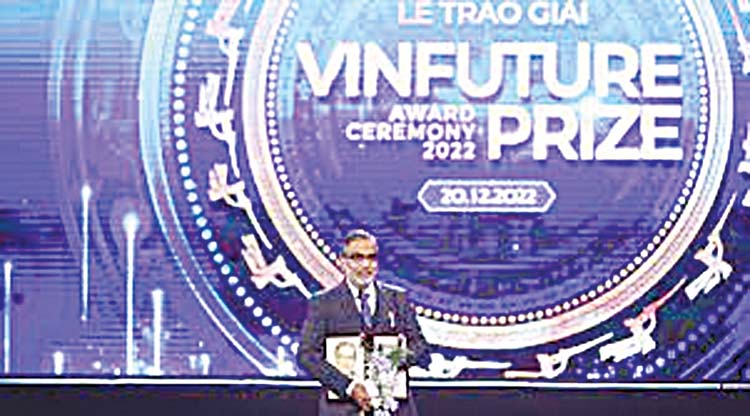Chennai, Dec 28 (Representative) Indian Institute of Technology-Madras (IIT-Madras) Chemistry Department Professor Thalappil Pradeep has won one of the ‘VinFuture Prizes’, which are awarded annually in four categories. Recipients were selected from nearly 1,000 nominations across 71 countries. The Special Prize dedicated to ‘Innovators from Developing Countries’ was awarded to Prof.Pradeep for his development of a low-cost filtration system to remove arsenic and other heavy metals from groundwater. This can help hundreds of millions of people around the world living with contaminated water get access to clean water. Prof. Pradeep received the VinFuture prize at the award ceremony in Hanoi, Vietnam recently, a release from IIT-Madras said today. Prof.Pradeep has been recognized earlier with Padma Shri, Nikkei Asia Prize and Prince Sultan Bin Abdulaziz International Prize for Water among many others and his technologies are delivering clean water to over 1.2 crore people.
The VinFuture Grand Prize is valued at USD three million – one of the largest ever annual prizes globally. It also includes three special prizes of USD 500,000 each given to female innovators, developing country innovators and innovators with outstanding achievements in emerging fields. Commenting on winning the award, Prof.Pradeep said “this recognizes everyone who worked with me, everyone who has been benefited from the work and those who enabled the translation of our work. At the same time, I am aware of the huge gap yet to be bridged to deliver clean water to everyone. I hope that this recognition will help in realizing that dream. I thank my institute which gave me everything. I thank my country, which made me stand up.” Prof.Pradeep discovered affordable and sustainable nanomaterials to produce clean water. The arsenic and other materials removed by these materials do not impact the surrounding environment. This method, employing simple designs, provides a means to purify groundwater at a low cost to reach millions of impacted households. In remote areas, this technology is more advantageous because it does not require electricity.

